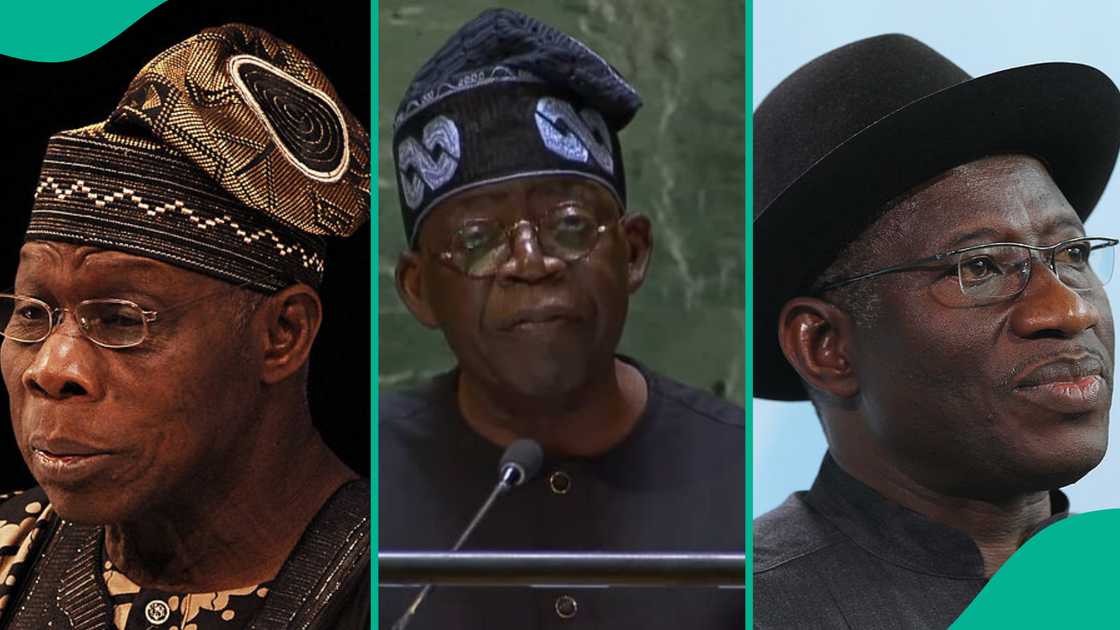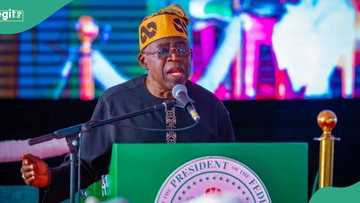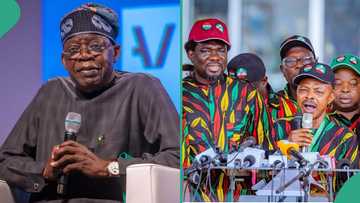Minimum Wage: List of All Approved Amounts by Nigerian Government in History from 1960 to 2024
- Nigeria's minimum wage history reflects the nation's socio-economic struggles and the pursuit of a better life for workers
- From N125 in 1981 to N70,000 in 2024, Nigeria's minimum wage journey highlights efforts to match wages with economic realities
- The milestones in Nigeria's minimum wage reveal a narrative of negotiation, economic reforms, and the demand for a living wage
Don't miss out! Join Legit.ng's Sports News channel on WhatsApp now!
In Nigeria's economic history, the minimum wage has been a barometer of the nation's socio-economic health.
From the early days of independence to the present, each increment in the minimum wage tells a story of struggle, negotiation, and the relentless pursuit of a better life for the Nigerian worker.

Source: Getty Images
Here, Legit.ng explored the significant milestones in Nigeria's minimum wage history, drawing insights from various reliable sources:
1981: The dawn of minimum wage - N125 per Month
In 1981, Nigeria introduced its first national minimum wage at N125 per month. This was a monumental step driven by the Nigerian Labour Congress under the leadership of Hassan Sunmonu. The demand for improved workers' welfare was loud and clear, and the government, wary of a nationwide strike, conceded. At the time, N125 was equivalent to about $204, a substantial amount that reflected the economic realities of the era. This wage was a beacon of hope, promising a better standard of living for the average Nigerian worker.
1991: A decade later - N250 per month
By 1991, the minimum wage was doubled to N250 per month. This increase came amidst economic challenges and inflationary pressures. The Nigerian economy was grappling with structural adjustments, and the wage increment was a necessary response to the rising cost of living.
2000: Entering the new millennium - N5,500 per month
The turn of the millennium saw a significant leap in the minimum wage to N5,500 per month under former president Olusegun Obasanjo. This dramatic increase was a response to the economic reforms of the late 1990s and the need to align wages with the cost of living. The Nigerian economy was undergoing liberalization, and the wage hike was intended to cushion workers against the shocks of these reforms. However, the disparity between the wage and the actual cost of living remained a contentious issue at the time.
2011: A new era - N18,900 per month
Under Goodluck Jonathan's administration, the minimum wage was set at N18,900 per month in 2011. This was a period of significant political and economic changes. The wage increase was part of broader efforts to improve the welfare of Nigerian workers and reduce poverty. Despite this, the wage was believed to fall short of meeting the basic needs of many workers, reflecting the ongoing economic challenges.
2019: A step forward - N30,000 per month
The year 2019 saw the minimum wage rise to N30,000 per month under former president Muhammadu Buhari. This increase was a result of prolonged negotiations and strikes by labour unions. The government recognised the need to adjust wages to reflect the current economic realities, including inflation and the rising cost of living. This wage increment was seen as a positive step, but many argued that it was still insufficient to provide a decent standard of living.

Read also
Some workers to receive N200,000 minimum wage as FG ends 20-year dispute in maritime Sector
2024: Latest update - N70,000 per month
In 2024, the minimum wage was updated to N70,000 per month, the highest in Nigeria's history. The labour union's persistent call for a living wage that could adequately support Nigerian workers. The new wage reflects President Tinubu's commitment to improving the welfare of its citizens amidst ongoing economic challenges. However, the effectiveness of this wage in addressing the cost of living and reducing poverty remains to be seen.
The history of Nigeria's minimum wage is a testament to the enduring struggle for economic justice and the relentless pursuit of a better life for Nigerian workers. Each increment, while significant, highlights the ongoing challenges faced by the workforce in a dynamic and often volatile economic landscape.
List of governors to pay N70,000
Meanwhile, Legit.ng earlier reported that following President Bola Tinubu’s agreement with organised labour to peg the new minimum wage to N70,000, the focus would shift to the state level regarding compliance.
So far, many governors have yet to decide on the minimum wage. However, a few have agreed to pay it
Proofread by Kola Muhammed, journalist and copyeditor at Legit.ng.
PAY ATTENTION: Donate to Legit Charity on Patreon. Your support matters!
Source: Legit.ng





